OK, we admit it: glass safety codes like EN12150 aren’t the most exciting topic in the world. But ignore them at your peril.
Toughened safety glass is an essential feature of any modern domestic or commercial building. As such, designers and architects must ensure that every sheet of toughened glass used in a project is up to scratch. So, how can you check whether your supplier is being truthful about the strength of their toughened glass? The answer lies in the magic code: EN12150.
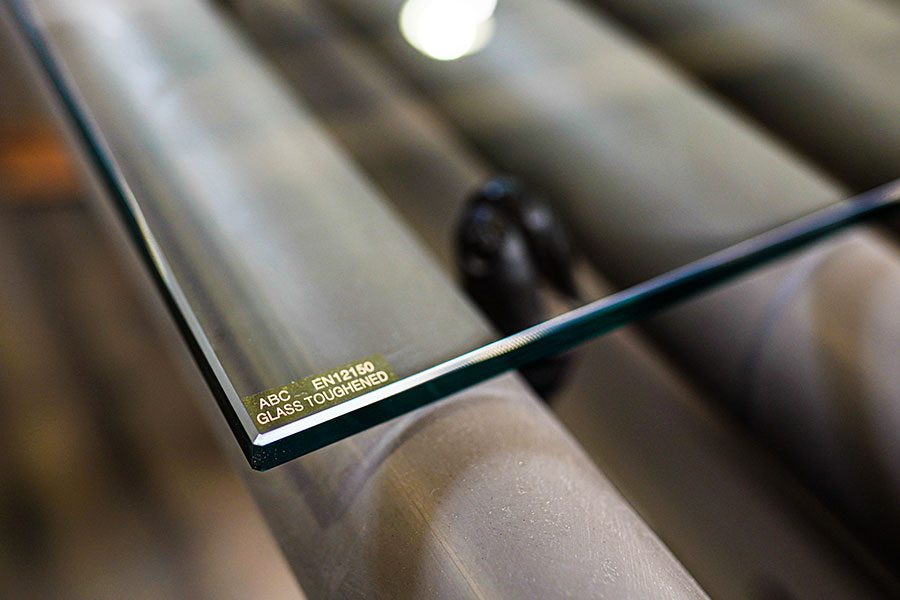
Put simply, EN12150 is the legal British standard for making thermally toughened safety glass. All toughened glass, whether at home or in a commercial space, must meet EN12150 standards. No ifs, no buts.
Why is the EN12150 standard so important?
EN12150 requires all glass manufacturers to meet a minimum standard when producing toughened safety glass. This guarantees quality and conformity across the whole glass industry, as well as improving public safety. Indeed, using glass without certification could put people at risk of serious injury.
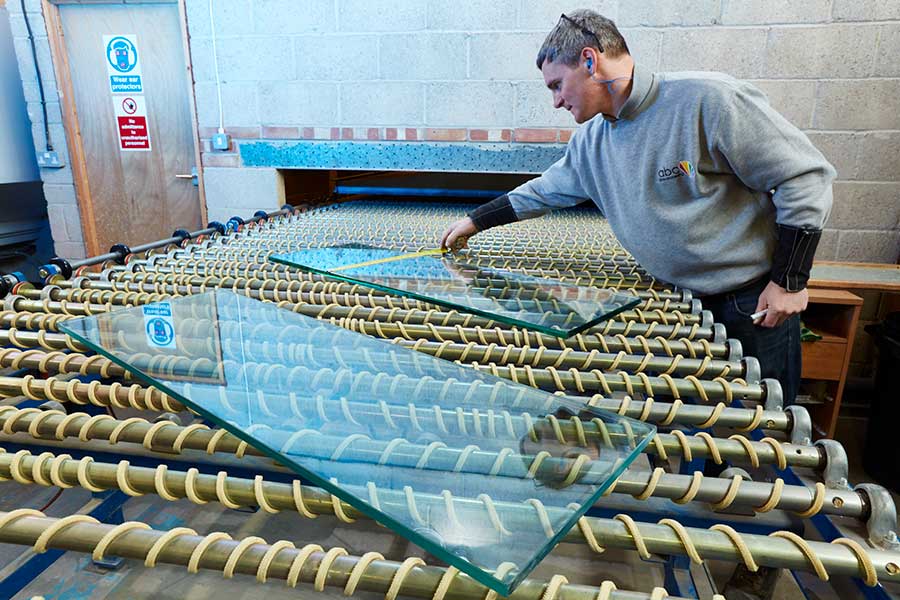
Toughened glass must be able to withstand all kinds of pressures. In the worst-case scenario, when a sheet of toughened glass breaks, it needs to shatter – not crack. Shattered EN12150 glass forms tiny pieces no greater than 5mm in size. This prevents any large glass shards from forming, which in turn reduces the risk of serious injury.
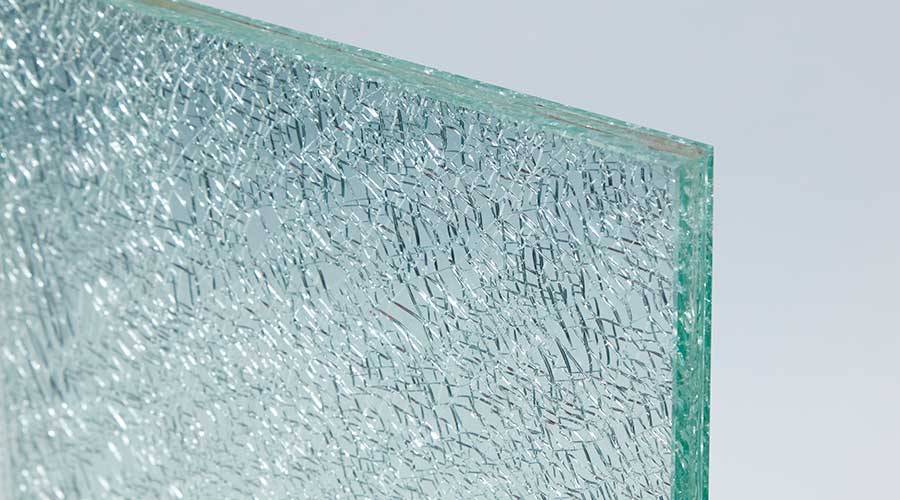
More generally, EN12150 safety glass is a stronger and more robust product, able to tolerate intense loadings. It also offers greater resistance to impact and sudden changes in temperature, as well as edges polished to safe smooth finish.
What glass products must meet EN12150 standards?
Look around your home – almost every piece of structural glass you see will be toughened to EN12150 standards. The only exception is laminated glass, which falls under a different safety regulation (EN 14449).
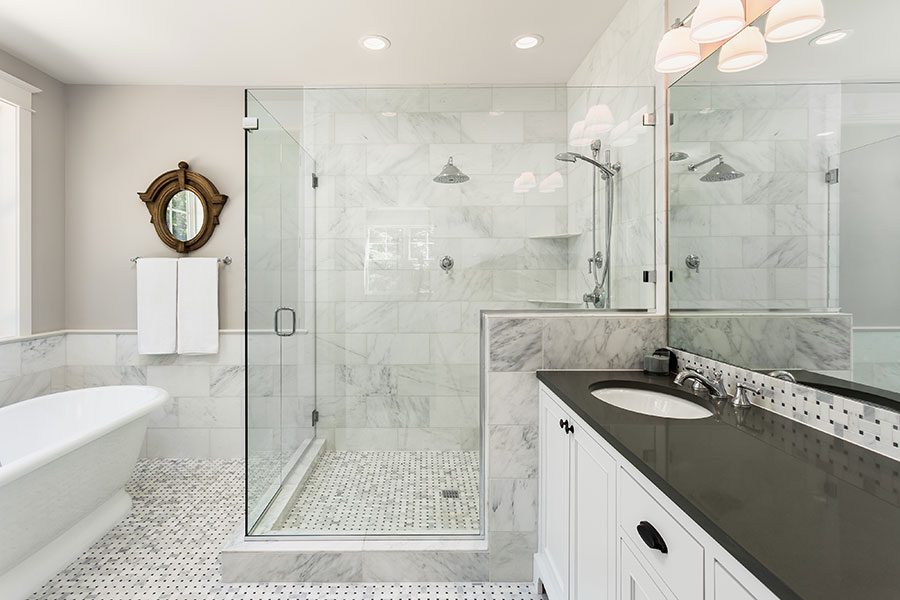
Shower doors, shower screens and glass partitions all require EN12150 certification. So do glass worktops, tabletops and glass shelves. For any new project, designers and architects must confirm the quality of their non-laminated toughened glass. As a rule, if it’s not laminated, it has to meet EN12150 standards.
How can I tell whether glass is EN12150?
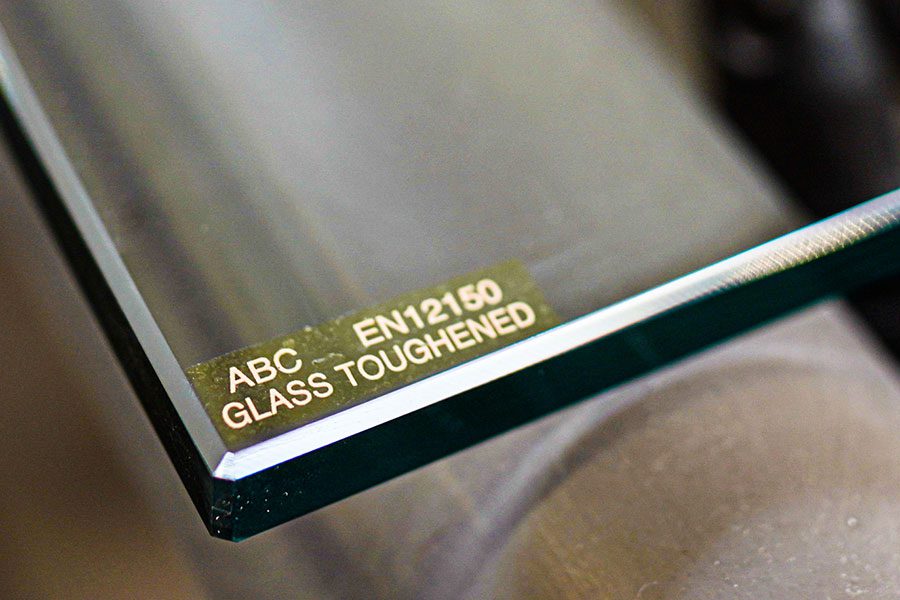
EN12150 glass can be identified in two ways: either written on the product as or indicated by a kitemark etched into the glass. All reputable suppliers will feature this on their toughened glass products. At abc Glass, relevant safety standard identifiers are displayed clearly on every sheet of our thermally toughened glass.
We have been producing toughened safety glass for 20 years. Our technicians offer a range of pre-toughening services to produce five kinds of safety glass: clear, tinted, painted, frosted and mirrored. These can be used in all manner of home and commercial products for showers, frameless doors, table tops, partitions, balustrades and balconies, staircases, and much more. If you’d like to know more about our toughened safety glass service, or speak to one of our glass processing experts, please get in touch.


